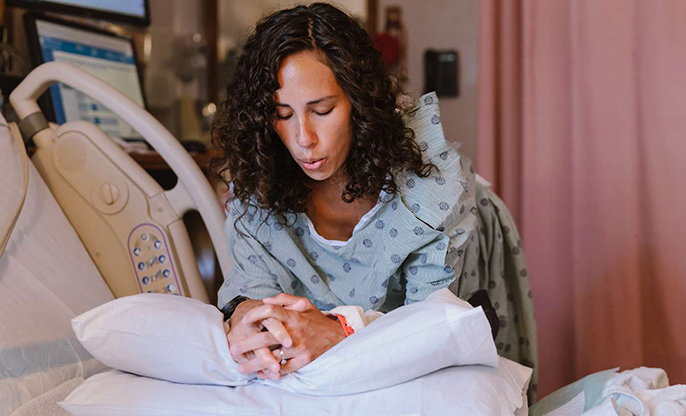
Why do you need a birth plan?
Women have given birth for centuries, but it is only now that there are clinics, hospitals, doctors and medical teams involved. They follow a standard set of routine practices, where one can feel left out or unanswered amidst all the hustle and bustle. Hence, we encourage you to be well-prepared for labour and birth by crafting a plan (in-advance) in your mind, simply by asking yourself, the following;
What do you, as a mother, want from the labour and birthing process?
Whose support do you want at that time?
What are your expectations from your care provider?
Answers to the above questions will give you clarity on the set of preferences that you want to create for your labour and birth process during the 3rd trimester of your pregnancy.
How do you create a birth plan?
Since this is your set of birth preferences, it will be unique to you; there is no one-size-fits-all birth plan, as much as the internet would like to convince you otherwise. What you CAN do is educate yourself and look up some evidence-based information on birth and find out what choices are available to you as a mother. Use a blend of informed decision making and your intuition!
Keep the following in mind while crafting a plan;
Think of all that you have heard about labour and birth. Is pain in the forefront? Then your plan should incorporate pain management
Try creating an inner balance between your and baby’s needs
Underline any fears or anxieties, you may have
Do you think what you know about labour & birth is a complete picture? Find out where you can get more information (like a childbirth class) and add what resonates with your birth plan
What do you think about various interventions during labour?
Discuss scenarios with your care provider where interventions are commonly done - to start and speed-up labour
Would you like an induction/augmentation of labour?
Are you okay with medication to speed-up labour or do you want to avoid that and labour naturally?
What procedures are done routinely in the healthcare facility? For example, internal (vaginal) exams are done periodically during labour. A lot of hospitals use an IV line specially to deliver pain-relief medication; are you okay with that?
Some facilities monitor the baby’s heartbeat constantly using Electronic Fetal Monitoring (which is not needed if there are no complications) - is that something you are okay with?
Some interventions are related to hospital policies and have nothing to do with medical protocols but may affect your environment in labour - is the hospital okay with you having support people in the labour room?
Are they okay with you eating and drinking? Will they dim the lights if you choose dim lighting? Will they let you move around and change positions during labour?
Do you think a partner or a family member could support and advocate for you through the process or would you like the professional (and calm) support of a trained Doula?
In case you choose a medicine-free birth, a water birth, natural pain management technique or a Doula for birth - would your care provider be able to respect the choices you make and give you the birth experience that you deserve?
Takeaway
Choose your hospital, support system and preferences using these initial questions. Do not be hesitant to change your care provider/medical team if their approach and the choices they are offering do not fit your vision. Only if you feel safe and supported will your physiology unfold and birth will happen the way nature intended.

































































